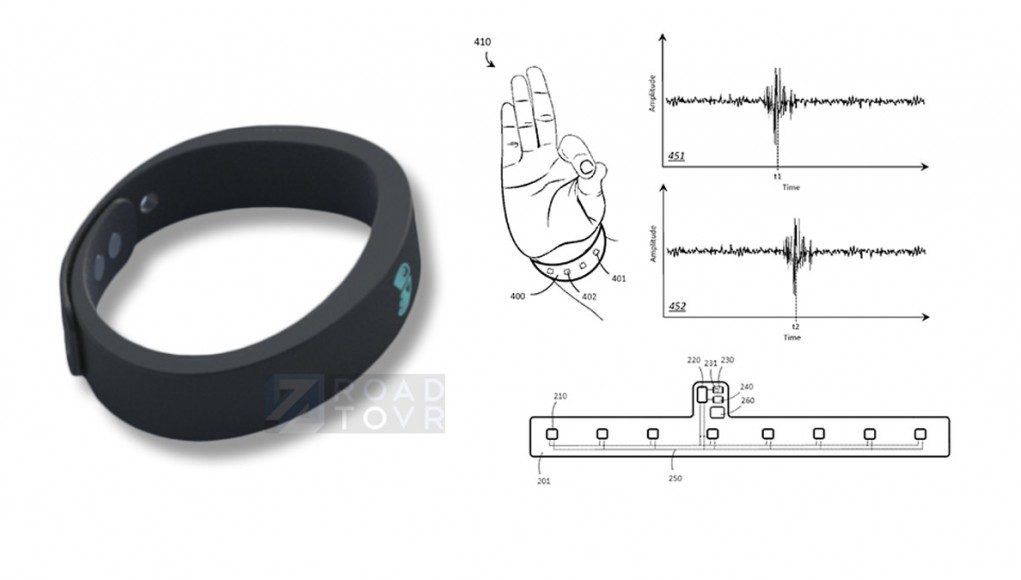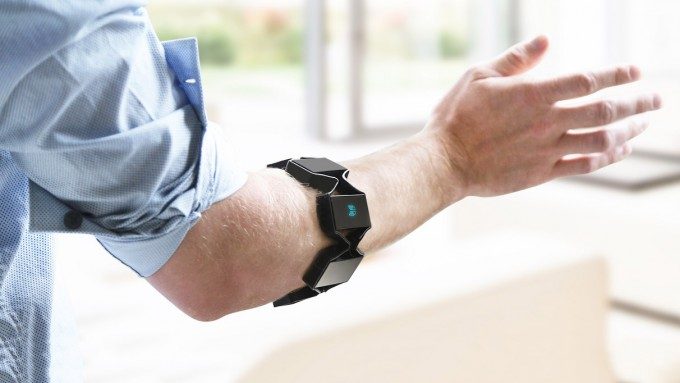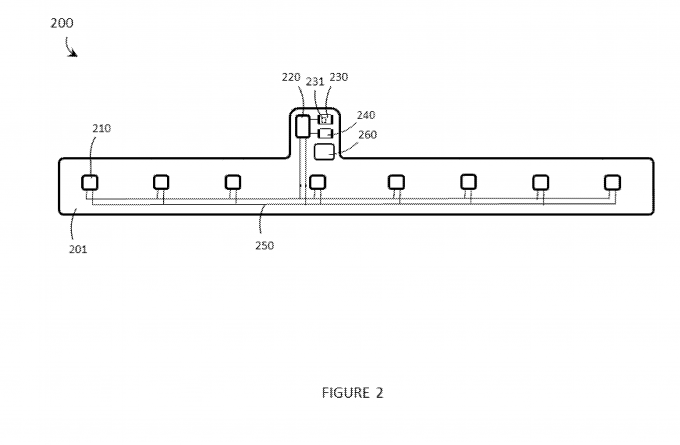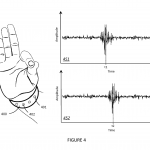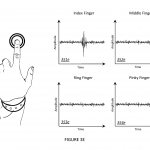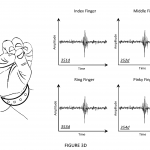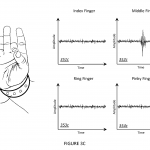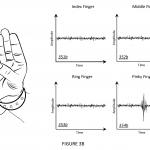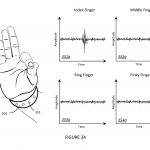Thalmic Labs, makers of the gesture control armband MYO may be working on a new VR controller, a wristband device which senses the position of your fingers. The company is teasing new products after closing a whopping $120 million Series B investment.
Thalmic Labs just secured a cool $120M in Series B funding from some very high profile investors. Led by Intel Capital, the Amazon Alexa Fund, and Fidelity Investments Canada, the new tranche of money will allow the company to “realize our vision for the next era of computing, where the lines between humans and digital technology become increasingly blurred.”
That’s a huge sum of money for a company whose first product, the Myo armband, fell short of its potential and received a lukewarm critical reception. The MYO detects gestures by sensing the tensing of muscles in your arm as you move it. The armband extrapolates gestures from your movements combined with data from motion sensors, and wirelessly transmits input data to the host application.
In short, when wearing a MYO armband, you can move and rotate your arm and make general, broad gestures which can be used as input for a game or application. It’s a great idea, but this first generation unit was limited in its tracking fidelity, and despite being poised partly by the company as a VR input device, it saw little to no adoption there.

We’ve learned however that Thalmic Labs have may be working on a new, much more advanced input device, one which is designed very much with virtual reality in mind. According to an anonymous source claiming to have links with a former Thalmic Labs employee, the company has hired people from the VR and human computer interaction spaces, and their next big product is targeted for launch by the end of the year. The company’s revamped website and medium post announcing their latest investment show VR iconography among other devices like smartphones and computers (seen in the photo above).
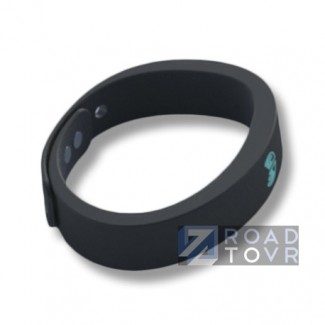 According to this source, who provided the previously unseen rendering on the right, the new device is a wristband that senses a much finer level of gesture detail, seemingly able to detect individual finger-based gestures. The source claims that the core technology behind the new device is based on this patent, filed in June of last year by Thalmic Labs under the title “Systems, articles, and methods for wearable human-electronics interface devices”. We’ve reached out to Thalmic for comment but have yet to hear back.
According to this source, who provided the previously unseen rendering on the right, the new device is a wristband that senses a much finer level of gesture detail, seemingly able to detect individual finger-based gestures. The source claims that the core technology behind the new device is based on this patent, filed in June of last year by Thalmic Labs under the title “Systems, articles, and methods for wearable human-electronics interface devices”. We’ve reached out to Thalmic for comment but have yet to hear back.
The patent documentation is extremely dense, however it does clearly include images depicting a wrist-mounted device which incorporates integrated sensors. The device is initially described as “an exemplary wearable human-electronics interface device,” which “may bend to encircle a user’s wrist,” and “may be sized and dimensioned to encircle a different appendage of the user.” In the case of this patent however, the focus is clearly on the wrist.
The sensors seen in the image below (referred to as Fig. 2) are “are spaced-apart from one another so that they are distributed over at least a portion of the circumference of the user’s wrist”, each of those sensors is coupled with a processing unit (see Fig.2 ‘220’) and is described to “classify” the signals it received. In other words, interpret the data and decide on what it means in terms of input.
The device includes a transmitter (‘240’ in Fig. 2 above) which is used to “transmit at least one interfacial signal that, when received by at least one downstream receiving electronic device (not shown in FIG. 2), effects an interaction between the user and the at least one downstream receiving electronic device.” In layman’s terms, it sends data to another device (computer / phone etc.) for use as input data.
The patent also focuses heavily on examples of the types of input that this new device is capable of detecting. Repeated references to “finger tap” is made and is illustrated (as seen below – click images to enlarge and browse). In addition different finger positions are depicted as producing different signal data, picked up by the wristband. The patent seems to indicate the integrated are largely made up of MEMS (microelectromechanical systems) Microphones which pick up the vibrations caused by flexing of the fingers.
Additionally, integrated inertial sensors are mentioned in order to capture rotation and “broader motions” of the user’s arms and wrist. The patent was filed in June of last year but only published in December 2015.
It should be pointed out that the information regarding Thalmic Labs intentions for this patent and the alleged wristband controller are from an unconfirmed source, but with news of Thalmic Labs’ huge investment emerging, the timing of the potential leak and the patent documentation gives us reason to believe the company has something significant in the works.

